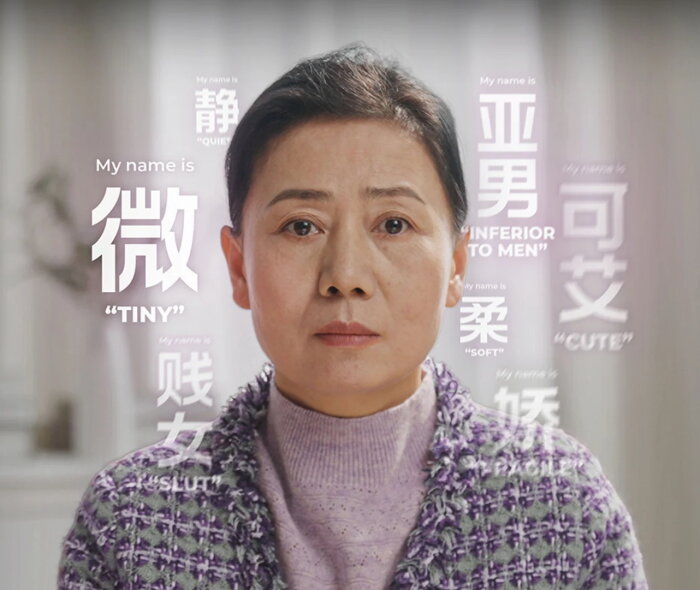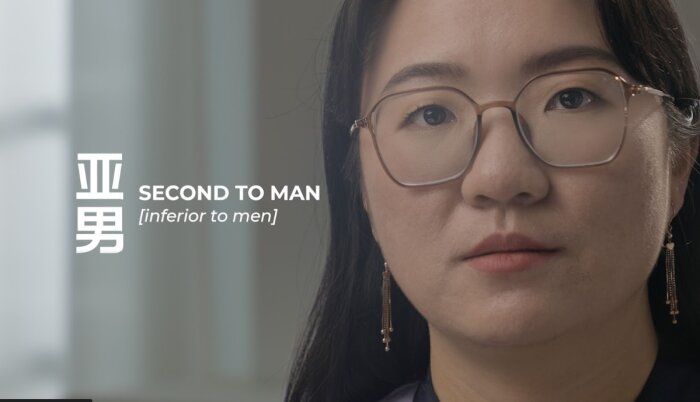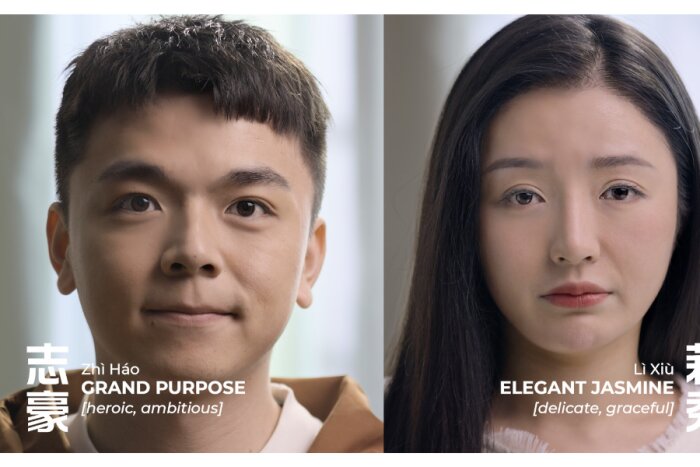When LUX and its agency VML discovered that women often disliked their stereotypically soft and submissive names, they decided to act. Hinoti Joshi told us what happened next.
In Asia, Unilever¡¯s skincare, cleansing and beauty brand LUX has mission similar to that of Dove in other markets: it speaks up for women. In fact, LUX empowers them to ¡°own¡± their femininity, without being patronised, limited or objectified.
The ¡°In Her Name¡± campaign in China was a bold and provocative example of this stance. It challenged the fact that women are often given names like ¡°Quiet¡±, ¡°Soft¡±, or ¡°Tiny¡±, while powerful words like ¡°Strong¡± and ¡°Victory¡± go to boys. The solution? Create 100 empowering new names for Chinese women.
Hinoti Joshi, Global Business Lead ¨C Unilever at VML Singapore, told us more about the project.

What is the positioning of the LUX brand in China compared to other markets?
LUX¡¯s positioning in China is rooted in its global purpose of empowering women to find strength in their beauty and rise above the judgements they face. The brand took on a societal and cultural role, actively challenging the traditional labels (i.e. sexist names) associated with women.
How did you first become aware of the problem concerning girls¡¯ names there? I understand there was even a hashtag ¡°I Hate My Name¡±.
The issue first came to light through some articles that highlighted how traditional naming conventions reinforce gender stereotypes in China. While male names often convey strength or power, many traditional Chinese female names are inherently stereotypical, even sexist, highlighting ¡°traditional¡± feminine qualities of softness and submissiveness, as well as parental preferences for boys ¨C making these names not just unrepresentative of modern women, but often become lifelong labels for women, reinforcing a gender bias that could limit their potential in life.
This disparity resonated deeply with women, culminating in the viral hashtag #IHateMyName, which garnered over 50 million views on social media. The sheer volume of engagement made it clear that this was not an isolated sentiment but a widespread concern. As a brand that has consistently stood against judgements and in this case sexist ones, this was a powerful opportunity for LUX to take meaningful action in a way that felt both authentic and impactful.
How did you find the girls represented in the video? It must have been quite brave of them to speak out in this way.
By tracking conversations around the #IHateMyName hashtag, we were able to reach out to individuals who had directly expressed frustration over their given names. Hearing their stories firsthand was eye-opening and deeply moving. Many of them had spent years feeling disconnected from their names, which often reinforced a societal expectation of submissiveness or restraint. Their willingness to step forward showed the scale of the issue at hand and these women became powerful voices in a conversation that had long been left unspoken.
What issues did you have when the campaign was released? Was there any backlash from the authorities or any other group in China?
The campaign was received positively, and we did not face any backlash from authorities or other groups. One of the reasons for this was the careful and thoughtful approach taken in executing the campaign. Instead of the campaign being a direct critique of cultural traditions, the campaign focused on offering an alternative perspective, celebrating the evolution of femininity and showcasing positive and empowering names that align with modern values done using Chinese letters and symbolism. We collaborated with linguistics expert Liu Yanchun on creating 100 new names.


What is the latest situation? Have girls adopted new and empowering names, and have new parents answered the plea?
The campaign¡¯s main objective was to bring visibility to an issue that had been overlooked for generations. By highlighting authentic stories and creating a list of over 100 empowering new names, we were able to shift the conversation and spark meaningful dialogue around how names shape identity.
While official name-changing procedures in China remain complex, many young women have begun embracing these new names informally, using them in social settings, on digital platforms, or as professional identities.
More importantly, the campaign has resonated with new parents, many of whom are now reconsidering the names they choose for their daughters. This shift in awareness and mindset is a crucial first step in reshaping how femininity is defined from the very start of a girl¡¯s life.